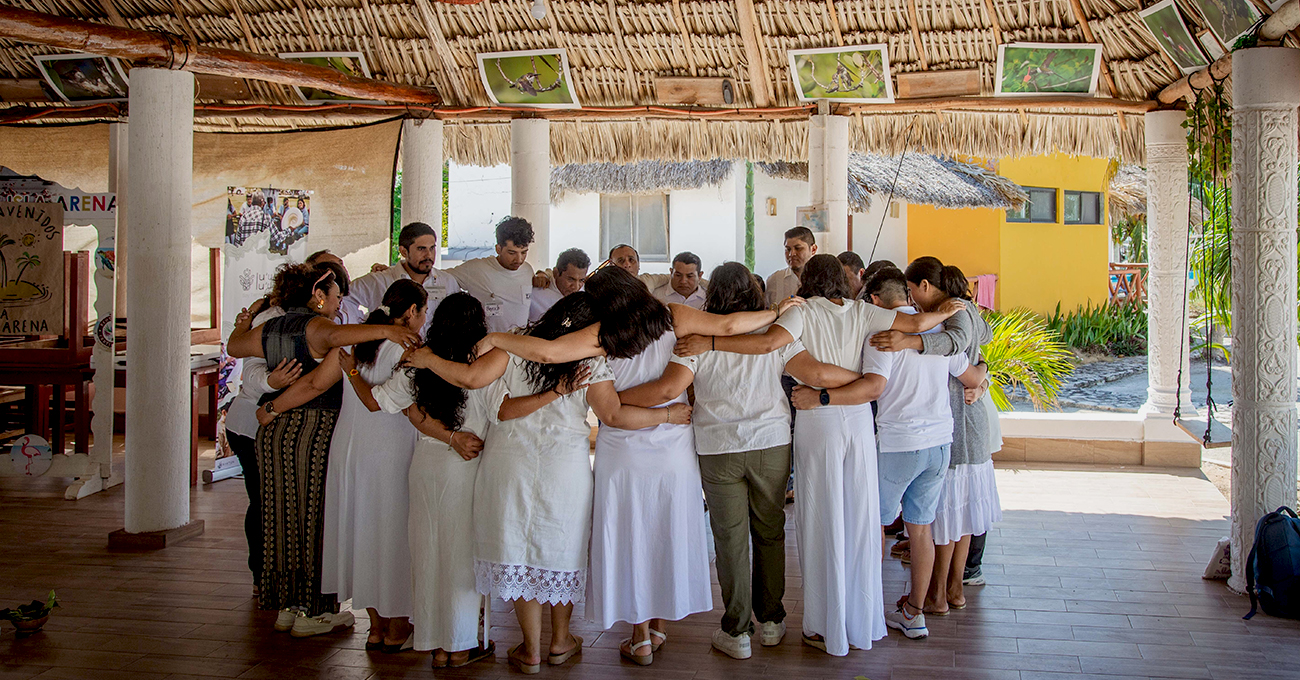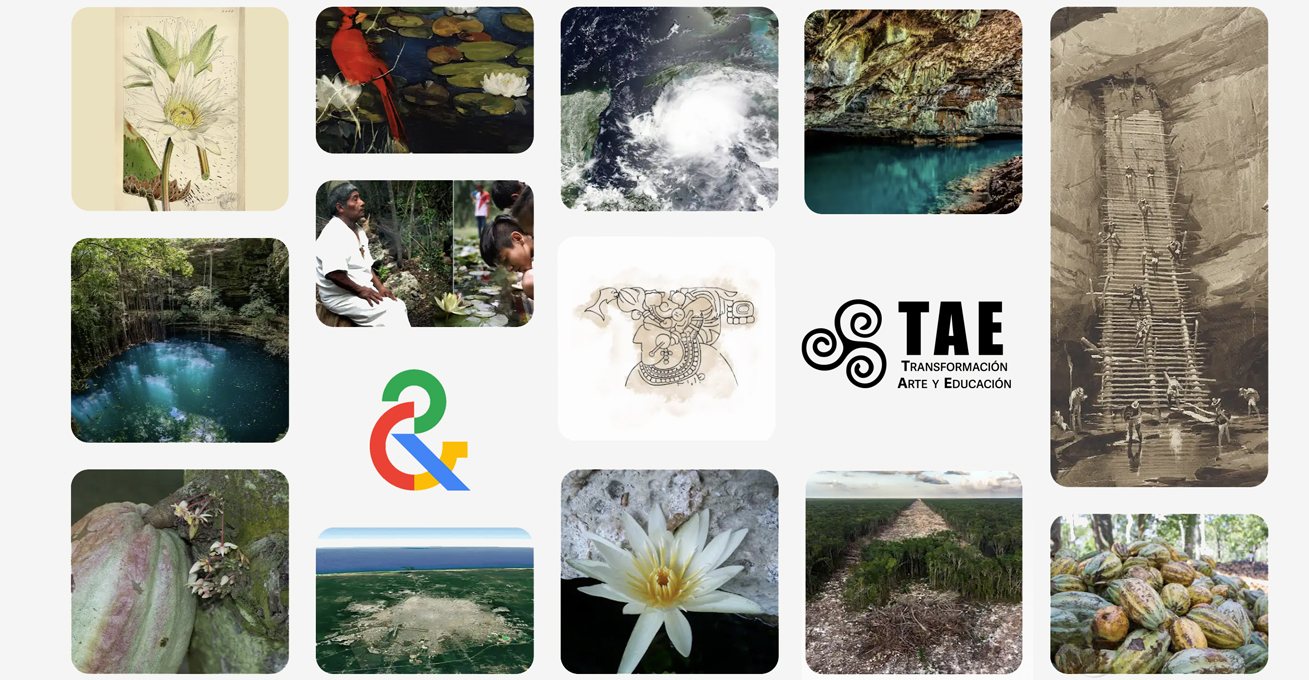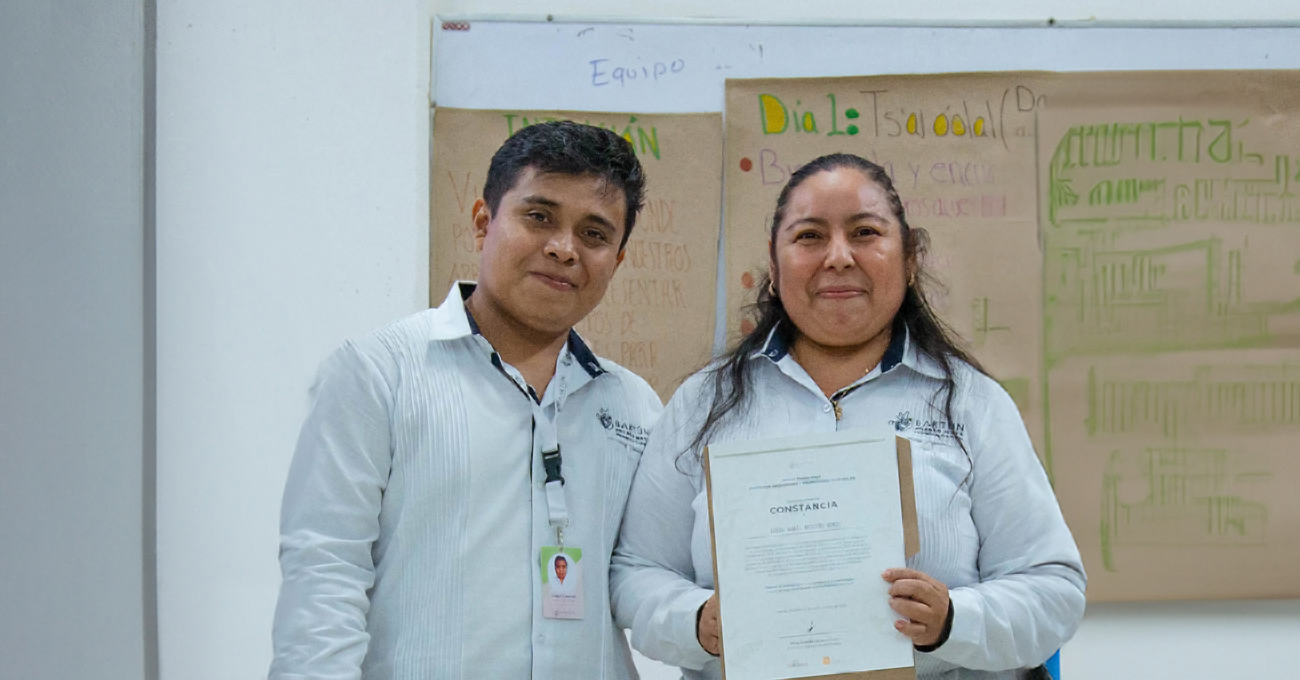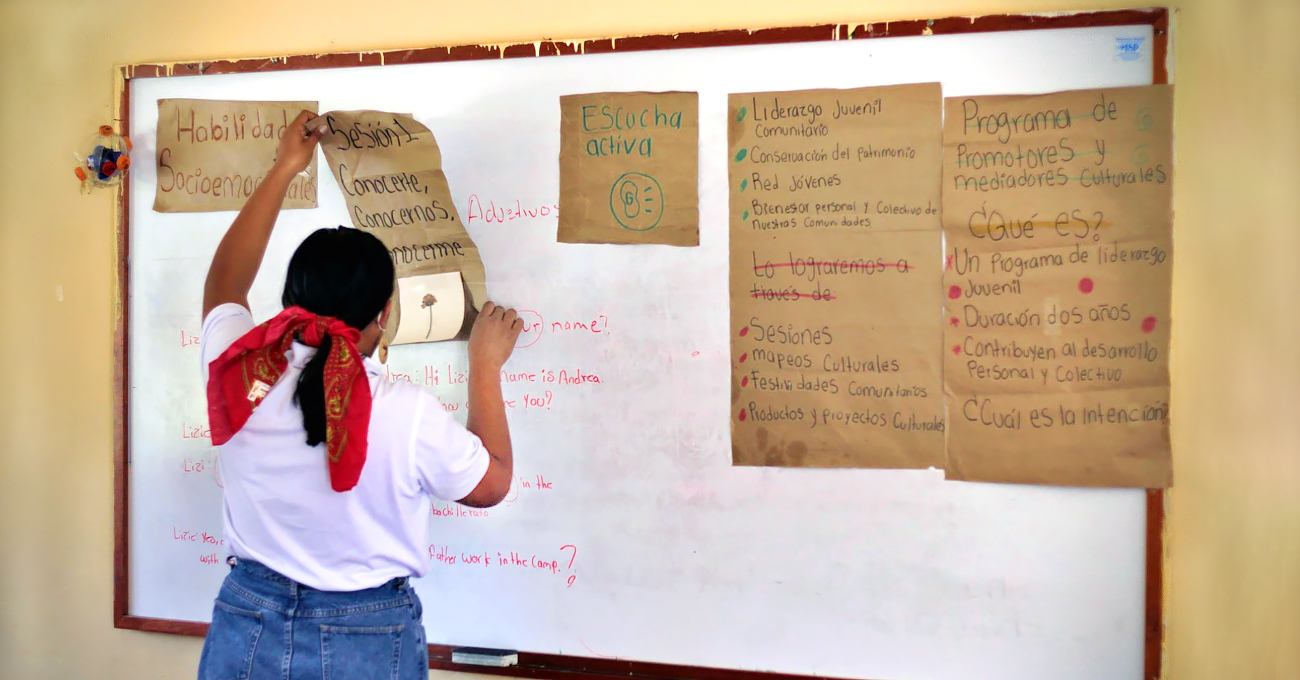
In an increasingly interconnected world, social organizations face complex global challenges, such as the environmental crisis and growing social inequality. To address these challenges, it is essential to adopt a leadership approach that not only solves immediate problems but also considers the interdependence of social, cultural, economic, and environmental systems. In this context, ecosystemic leadership emerges as a comprehensive response, promoting sustainable and inclusive solutions that create lasting impact in communities.
Thus, the Presencing Institute was founded with the purpose of developing the theory and practice of system transformation. This institute supports individuals, organizations, and multisectoral groups in generating deep changes in their contexts. A vehicle for this work is the u-School for Transformation, a platform and network of partners that promotes capacity development, research, action labs, and the creation of movements to drive system change based on awareness. This approach addresses the critical social and environmental challenges of our time through action-oriented learning experiences. The curriculum combines systems thinking, active learning, social arts, awareness-based practices, and multisectoral collaboration.
Within these experiences, the Ecosystemic Leadership program stands out, grounded in Theory U, a methodology developed by Otto Scharmer and his team at the Massachusetts Institute of Technology. This intensive program, which takes place in nature, brings together multisectoral leaders and change agents to cultivate the kind of leadership needed to tackle contemporary challenges.
Application of ecosystemic leadership
To apply ecosystemic leadership in social organizations, it is necessary to start with a systemic vision that encompasses the economic, cultural, social, and environmental aspects of the community. Consequently, it is key to foster active community participation in decision-making, ensuring that their voices are heard. Additionally, it is crucial to have an ongoing evaluation and monitoring system to adjust strategies as projects evolve, ensuring sustainable outcomes.
Thus, the Lu´umen Lu´omo´on program seeks to strengthen collaborative leadership and both individual and collective capacities, transcending learning in participatory community processes. It is aimed at facilitators and collaborators from partner organizations or beneficiaries of the W.K. Kellogg Foundation and other people involved in community projects in the Yucatan Peninsula.
Moreover, this program combines local, systemic, and regenerative pedagogical methodologies with tools that nurture participants' capacities to design, plan, and implement meaningful and innovative community learning processes.
Ecosystemic leadership capacities
From the perspective of ecosystemic leadership, the goal is to enhance the following capacities necessary to face future challenges:
- Lead in times of disruption and constant change.
- Connect with a vision of deep transformation.
- Learn and adapt to new realities.
- Foster intersectoral collaboration and co-creation.
- Embrace interdependence and sustainability.
- Empower local communities in the change process.
- Implement solutions based on shared knowledge.
The Lu´umen Lu´omo´on program puts these principles into practice through a curriculum that integrates systems thinking and ecosystemic leadership principles, as well as regenerative pedagogies, collective memory, and art as tools for integrating learning. All of this is engaged in dialogue with the pedagogical mediation base DIA.
Convergence with Theory U
The Lu´umen Lu´omo´on program is integrated with Theory U from its design, based on the premise that by immersing ourselves in the deepest level of awareness, we can discover our highest future possibility, represented by the "I" (with a capital letter), as opposed to the "i" (with a lowercase letter), which reflects our past.
Throughout the program, various stages of Theory U are addressed:
- Co-initiate: Integrate the ecosystem and share collective understandings, with special emphasis on the first module, in which tools of systems thinking suitable for the Maya communities’ context are shared.
- Co-sense: Explore the environment and open up to new experiences, promoting pedagogical mediation.
- Presence: Connect with the source of inspiration and reflect on new possibilities, a continuous process throughout the program.
- Co-create: Explore and connect with the future, designing collaborative actions.
- Co-evolve: Apply the lessons learned in concrete projects, using systems thinking tools.
Impact of leadership on participants of the Lu´umen Lu´omo´on program
Firstly, the strengthening of leadership capacities and the implementation of projects have allowed participants from different organizations to find opportunities for collaborative work and generate collective impact.
Moreover, the systemic approach of the program enables participants to develop their leadership competencies. This reconnects them with their life purpose and strengthens their self-confidence and ability to positively influence others.
Additionally, the implementation of ecosystemic leadership has transformed the organizational culture of some participants. On a personal level, it has changed habits and emotional connections. At the institutional level, it has created an environment of unlearning and collective learning.
Finally, by adopting an ecosystemic leadership approach that fosters openness to change and experimentation, participants began to feel more comfortable proposing new ideas. The integration of diverse perspectives helped foster a culture of constant innovation, where each member felt motivated to contribute with creative solutions.
Through these stages, the Lu´umen Lu´omo´on program not only aligns with the principles of ecosystemic leadership but also strengthens the participants’ capacities to generate transformative and sustainable change within themselves and their communities.



